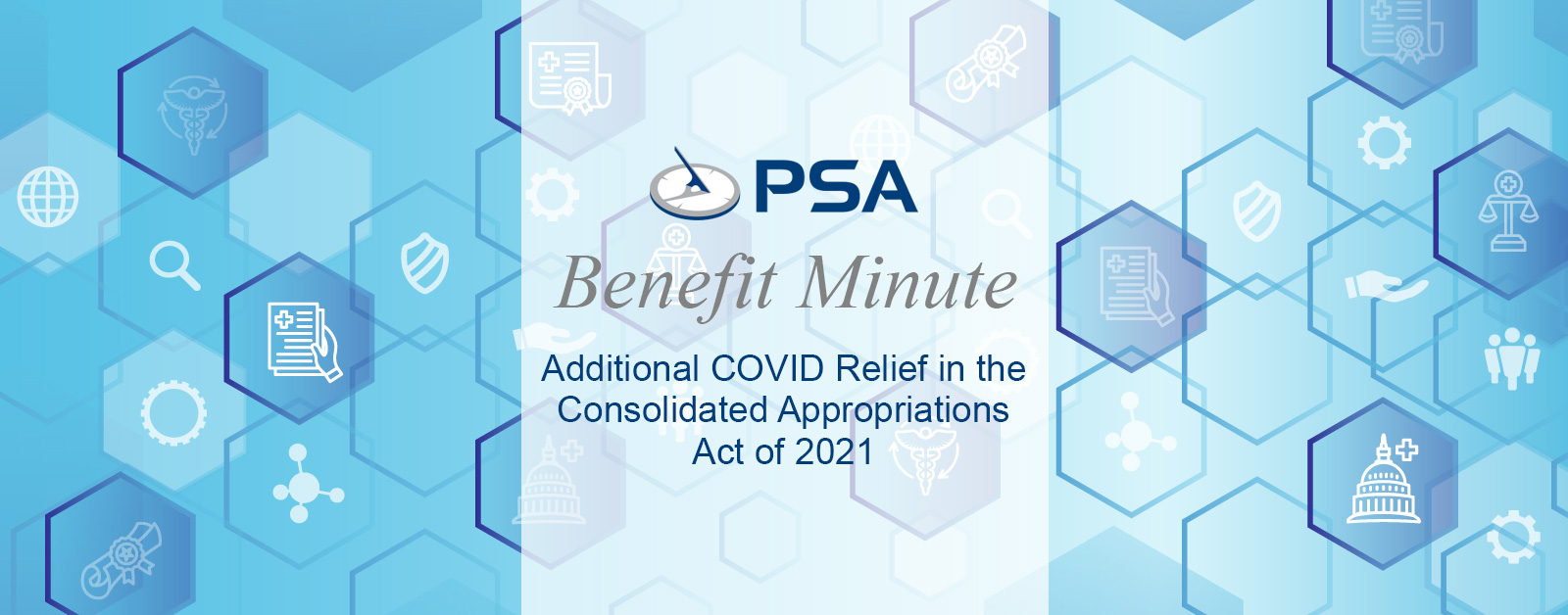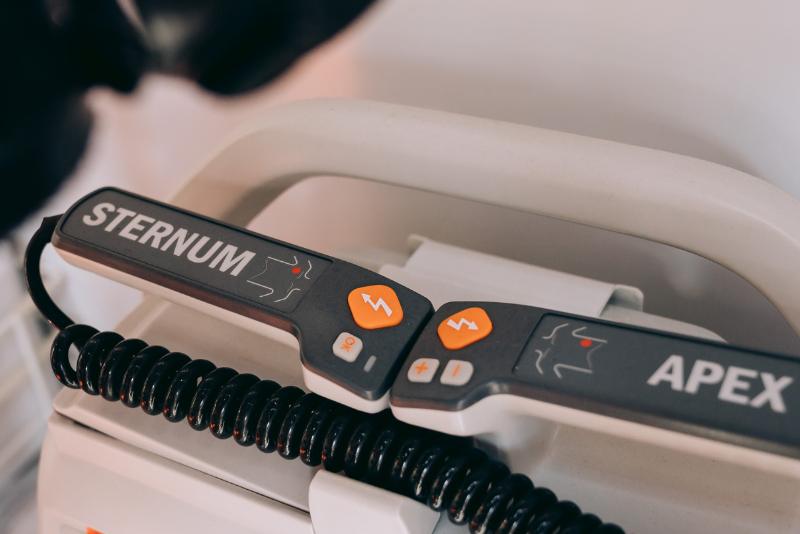On December 27th, President Trump signed the Consolidated Appropriations Act of 2021 (the Act) into law. The Act funds the federal government for the remainder of the fiscal year and provides additional COVID relief. This Benefit Minute provides an overview of benefit and payroll provisions in the Act.
Optional Flexible Spending Account Relief
The Act provides additional optional relief for flexible spending accounts that is intended to minimize plan forfeitures related to the pandemic without allowing employers to refund unused amounts to participants. Permitted relief includes:
- Unlimited carryover from plan years ending in 2020 and 2021 – For both health care FSAs and dependent care FSAs, an employer may permit an employee to carry over the full unused balance remaining at the end of the plan year into the subsequent plan year (2021 and 2022 respectively). This is an exception from the general rule that prohibits dependent care FSA carryovers and permits carryovers of up to $550 for the health care FSA. A plan with a grace period cannot adopt the enhanced carryover provision (but see below). However, it appears that a plan without a grace period or a current carryover can adopt this provision.
- Extension of 2½ month grace period – For health care FSAs and/or dependent care FSAs that have the 2½ month grace period for claims to be incurred, employers may extend the grace period for a plan year ending in 2020 or 2021 for up to 12 months after the end of the plan year, with respect to the unused balance in the FSA account.
- Post-termination health care FSA reimbursements – An employer may permit terminated employees to receive reimbursements of claims incurred through the end of the plan year (including any applicable grace period) in which participation ceases without electing COBRA. This provision, if adopted, applies to employees who cease participation during calendar year 2020 or 2021. While this relief will operate under rules similar to those applicable to the dependent care FSA spend-down provision, it does not apply to a dependent care FSAs because those are already permitted to include a spend-down feature as a term of the plan.
- Special rule for dependent care FSAs where child aged out during pandemic – Dependent care FSAs may provide reimbursements for expenses incurred for children below age 14 (as opposed to below age 13) if an employee made an election during open enrollment that ended on or before January 31, 2020 and the child turned age 13 during that plan year. Any unused amounts for that plan year may be carried over to the next plan year to reimburse expenses incurred until the child reaches age 14. This provision does not allow an employee to make a new election. It only allows for spend-down of an existing balance.
- Change in election amounts for FSA – For plan years ending in 2021, an employer may allow a health care FSA and/or dependent care FSA prospective election change without regard to the change in status rules. This only applies to FSA elections and not salary reduction elections for health insurance.
As stated above, these provisions are permitted but not required. Employers should carefully weigh possible forfeiture amounts involved against additional FSA communication and administration issues before deciding whether to adopt any of these changes. Coordination with FSA administrators is important to ensure FSA claims are properly processed.
The FSA plan must be amended for this relief, and the amendment must be adopted not later than the last day of the first calendar year beginning after the end of the plan year in which the amendment is effective (i.e. December 31, 2021 for calendar year plans adopting for the 2020 plan year and December 31, 2022 for non-calendar year plans adopting for the 2020 plan year), as long as the plan is operated consistently with the terms of the amendment from the effective date of the amendment to the date of adoption.
As a reminder, HSA eligibility also has to be considered by employers that offer a qualified high deductible health plan as the health care FSA relief (including expanded carryover, grace period extension and post-termination reimbursements) may adversely impact eligibility to contribute to an HSA.
FFCRA Paid Leave
The Act does not extend mandatory paid leave under the FFCRA which expires on December 31, 2020. However, if private employers voluntarily chooses to continue FFCRA leave, they can claim tax credits for qualified wages paid through March 31, 2021. The same daily limits and employee eligibility requirements would continue to apply as if the entire FFCRA was extended. Employees who have already exhausted their leave under the FFCRA are not entitled to a new allotment.
Other Provisions
The provision in the CARES Act that permits employers to provide employees with tax free student loan repayments, as long as offered through a Section 127 education assistance program, is extended through December 31, 2025.
The tax credit for employers providing paid FMLA (not under FFCRA) is further extended through December 31, 2025. This tax credit was enacted before and is unrelated to COVID.
The repayment period of employees’ deferred social security taxes has been extended through December 31, 2021.
FFCRA employee retention tax credits are extended through July 1, 2021, the amount of the available tax credit is increased and the definition of a large employer for purposes of the tax credit is modified to more than 500 employees (up from 100).
The Act includes specific requirements to reduce surprise medical billing. These provisions are effective for plan years beginning on or after January 1, 2022.
The Act also includes health plan cost transparency requirements that seem to tie closely to the recently issued regulations as well as additional mental health transparency and annual prescription drug reporting.
Finally, the Act provides for direct payments to individuals as follows: $600 for single filers with modified adjusted gross income of $75,000 or less; $1,200 for joint filers with income of $150,000 or less; and $600 for each child who is under age 17. Lesser amounts will be paid for income up to $87,000 for single filers and $174,000 for joint filers.




